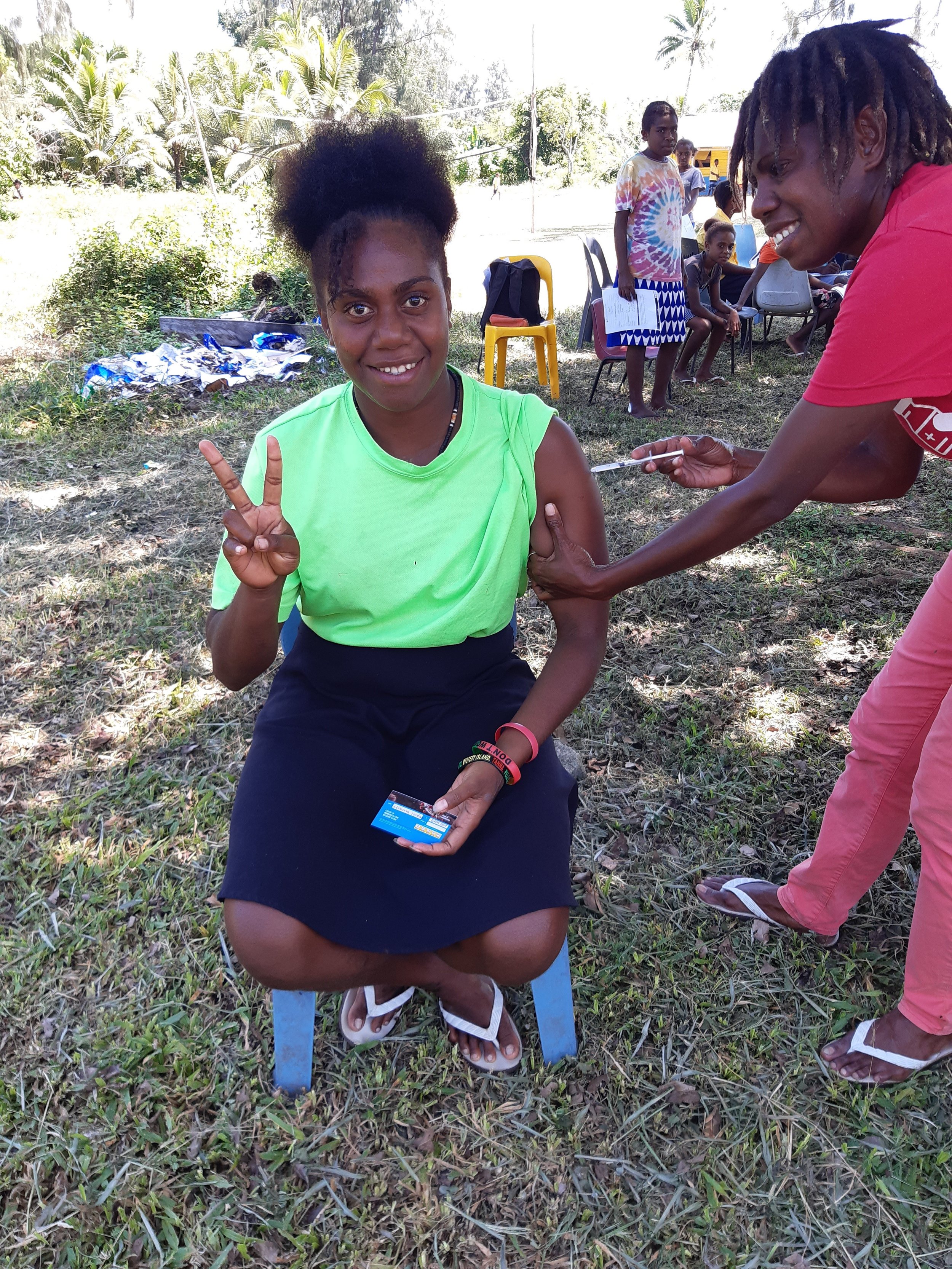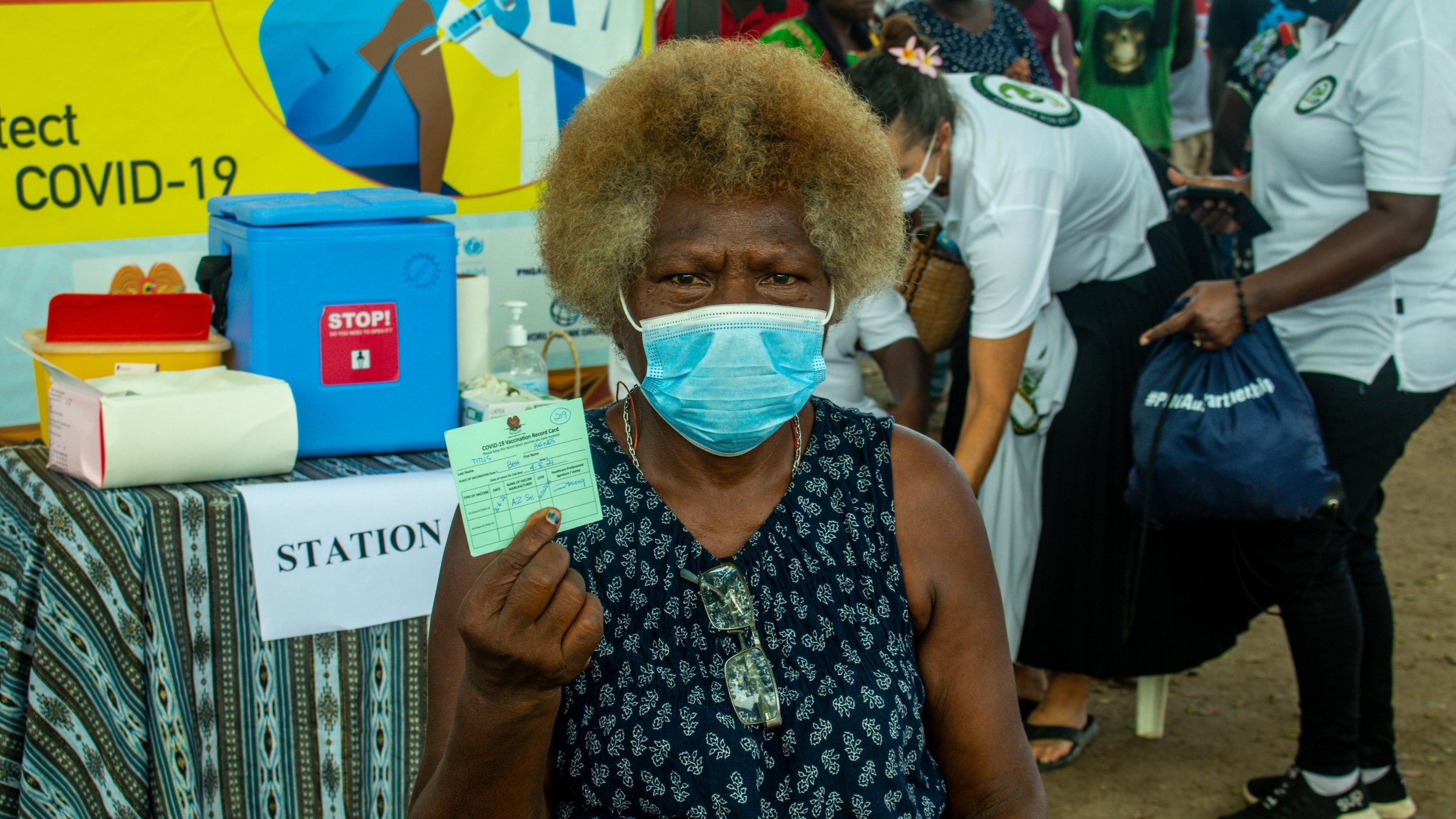COVID-19 Pandemic
On March 11, 2020, the World Health Organisation (WHO) categorised the spread of the coronavirus known as COVID-19 as a pandemic. The rapidity with which the virus spread and its severity prompted global shutdowns, with borders closed, international flights severely restricted and populations around the world following social distancing and isolation directives.
The virus poses specific risks to vulnerable and at risk groups – including the elderly, those with underlying health complications and those without access to adequate shelter, water and sanitation facilities. It placed enormous pressure on health systems globally. It also posed specific challenges to the humanitarian sector, including the ongoing delivery of humanitarian assistance within the context of travel restrictions and disrupted supply chains. The development of vaccines against the virus provided hope and a return to free movement, but also a new logistical and public health challenge, as country governments attempted to vaccinate large populations in a timely way.
AHP partners worked on COVID-19 responses throughout the Pacific and within other ongoing humanitarian efforts. You can read more below, and for COVID-19 updates and lessons, visit the AHP COVID-19 thematic page.
The AHP Pacific COVID-19 Response
Watch: how the Australian Humanitarian Partnership has responded to COVID-19 in the Pacific and Timor-Leste.
The AHP played a critical role in delivering Australian humanitarian assistance in response to the global COVID-19 pandemic. All AHP Australian NGOs were involved in COVID-19 response efforts, and the Pacific region was a primary geographical focus.
COVID-19 preparedness and response efforts were delivered through Disaster READY programs in Fiji, Papua New Guinea, Solomon Islands, Timor-Leste and Vanuatu. Ongoing disaster preparedness efforts supported through the Disaster READY program meant our networks of Australian and Pacific partners were active and able to rapidly respond and support the various national COVID-19 response efforts.
The Australian Government also responded to requests for assistance from the Kiribati, Samoa, Tonga and Tuvalu governments, and AHP partners implemented COVID-19 assistance in these countries.
The AHP Pacific COVID-19 response supported and aligned with the government-led responses in each country. Responses also shifted over the course of the pandemic: while initial work focused on sharing health and hygiene messages and addressing the economic impact of closed borders, in many countries the response shifted to support national vaccine rollouts, especially focused on remote communities and vulnerable groups.
In Vanuatu, Fiji and Tonga, AHP partners delivered integrated assistance in response to both COVID-19 and Tropical Cyclone Harold, which tore through the Pacific in early April 2020. In Timor-Leste, AHP partners integrated COVID-19 response efforts into humanitarian support provided to affected households in Dili following floods in both March 2020 and March 2021. In Papua New Guinea, the response had a special focus on combatting vaccine hesitancy and mis-information and supporting the vaccine rollout.
While the majority of COVID-19 specific responses concluded in 2022, additional responses targeting case surges and/or vaccine rollouts are continuing into 2023 in Vanuatu and PNG.
Beyond the Pacific
COVID-19 assistance was incorporated into active AHP multi-year humanitarian responses in Iraq (Building Peaceful Futures program), Lebanon and Jordan (Syrian Refugee Response), and Bangladesh and Myanmar (Rohingya Response). This was achieved through a combination of re-programming activities and accessing existing funding sources to target specific COVID-19 response efforts.
Separate COVID-19 responses also took place in Indonesia and Laos.
Response Highlights
In Fiji, civil society organisations played a pivotal role in the nation’s COVID-19 response. This included disabled people’s organisations.
In Vanuatu, the Women I Tok Tok Tugeta network mobilised within 24 hours of receiving training from the World Health Organisation to begin outreach sessions in their communities. Seasonal workers who had their travel plans disrupted by the pandemic participated in a Cash for Work program led by World Vision Vanuatu, while Oxfam rolled out ‘Unblocked Cash’, a novel cash transfer program to support affected communities.
In Kiribati, the construction of handwashing stations was rolled out to community meeting places and the national disabled people’s organisation, Te Toa Matoa.
In Tuvalu, psychosocial support through local churches helped people deal with the stress and uncertainty of the pandemic.
In PNG, partners shared radio messages and other education materials on COVID-19. Faith-based partners begun campaigns and community information sessions to build support for vaccination, while other partners targeted online mis-information.
In Tonga and Samoa, improved access to water through the provision of household and community water tanks supported health and hygiene initiatives.
In Solomon Islands, urban farming programs and other food security initiatives supported communities that had faced economic challenges due to the pandemic.
















